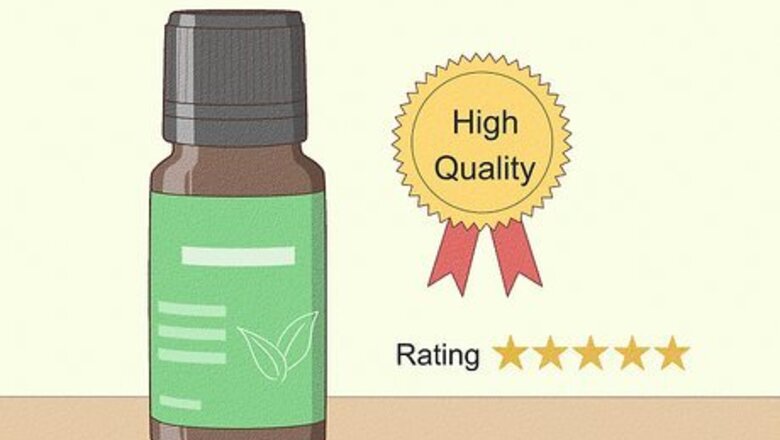
views
X
Trustworthy Source
Mayo Clinic
Educational website from one of the world's leading hospitals
Go to source
That said, aromatherapy could still improve your mood and make you feel better while you heal, and some people do say that it helps with their symptoms, too. There are a few different methods that you could try along with using more conventional treatments. If these don’t help, then see your doctor for an exam.
Doing Aromatherapy Properly
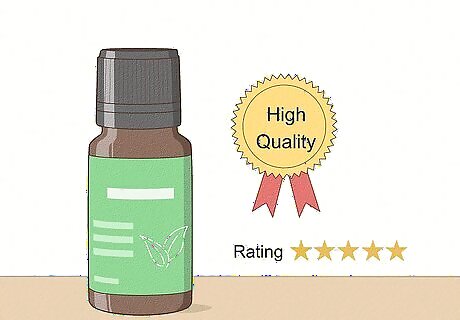
Choose high-quality essential oils. It’s very important to use oils from a reputable manufacturer, especially since the FDA doesn’t regulate these products. Reputable manufacturers will tell you the whole oil production process and every ingredient and additive in the oil. Check online for reviews of particular manufacturers. If you find complaints or violations, then don’t buy from this business.
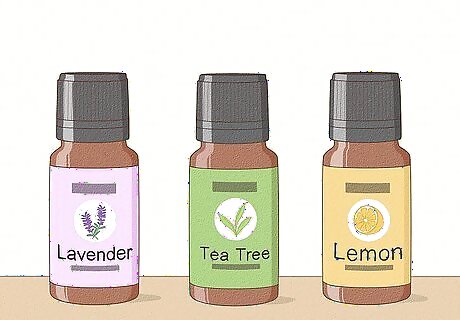
Pick lavender, tea tree, peppermint, or lemon oils. These oils are some of the best to fight congestion, and are also associated with few side effects. Some other oils include eucalyptus, lemongrass, oregano, and chamomile. They might also be effective, but some people experience minor allergic reactions to these.
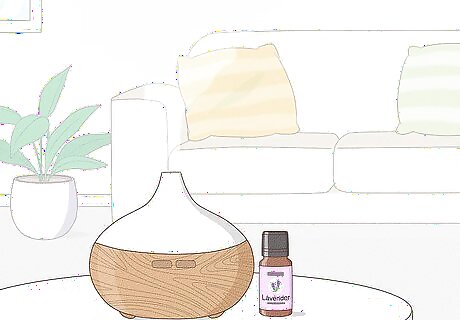
Use a diffuser to spread the oils throughout the room. This is a simple way to practice aromatherapy. Pour some oil into the diffuser and turn it on. The device will spray some oil periodically into the room. You could also dip reeds into the oil bottle. This spreads the aroma throughout the room similar to a diffuser.

Inhale the oils with a steam treatment. Fill a pot with hot water and add 1 or 2 drops of oil. Place your face over the pot, cover your head with a towel, and inhale deeply for a few minutes. Close your eyes while you’re under the towel so they don’t get irritated. Doctors don’t recommend steam treatments for children younger than 7.
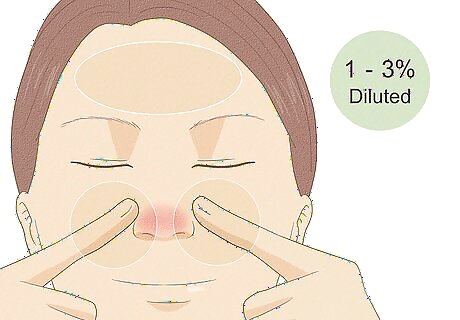
Massage diluted oil into your forehead. If the oil you get is diluted to 1-3%, then squeeze a drop onto your fingers and rub the oil onto your forehead around your sinuses. If it’s undiluted, squeeze a drop into 1 US tbsp (15 mL) of olive oil and rub it in. Don’t get any of the oil into your eyes. Never put undiluted oils onto your skin. This could cause irritation.
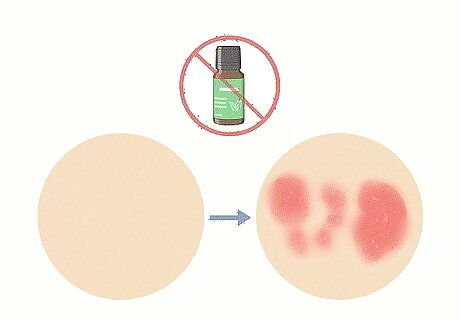
Stop using oils if you experience any adverse side effects. It’s possible that you’ll experience some itching, skin irritations, or a minor allergic reaction to some essential oils. If you notice these side effects, stop using the oil and contact your doctor.
Other Natural Sinus Infection Remedies

Drink water to keep your mucus loose. Your congestion will be worse if you’re dehydrated. Drink at least 8-10 glasses of water per day to help your sinuses drain better.
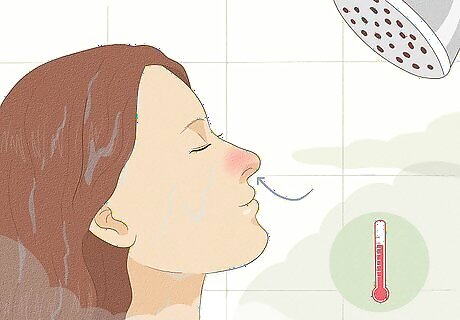
Take a hot shower and inhale the steam. This is essentially a steam pot treatment. Breathing deeply in a hot shower can break up mucus while helping relieve your headaches and tension. A bath will also work as well. You could add some drops of essential oil to the water for a similar effect to the steam pot treatment.
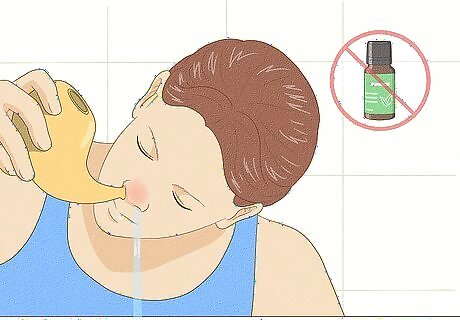
Rinse your sinuses with a neti pot. This flushes your sinuses and moisturizes your nose. Tilt your head to the side over the sink, pour the water into one nostril, and let it flow out the other one. Do not mix any essential oils into the neti pot water. Only use distilled water or saline to avoid irritating your nose.
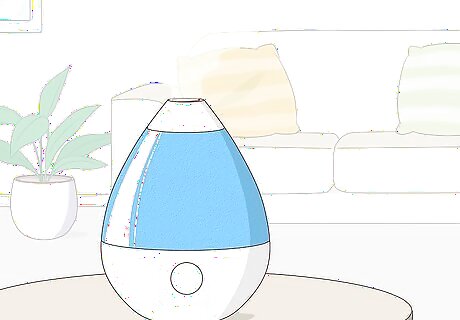
Humidify your home to keep your sinuses moist. Dry air can dry out your nasal cavity and cause nosebleeds or more discomfort. Use a humidifier to moisturize the air in your home to prevent your nose from drying out.
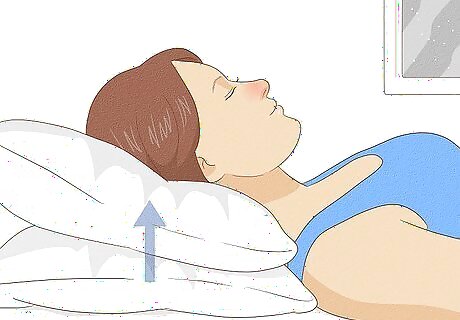
Elevate your head while you sleep. Try using an extra pillow to keep your head tilted forward. This prevents mucus from flowing back into your sinuses.




















Comments
0 comment